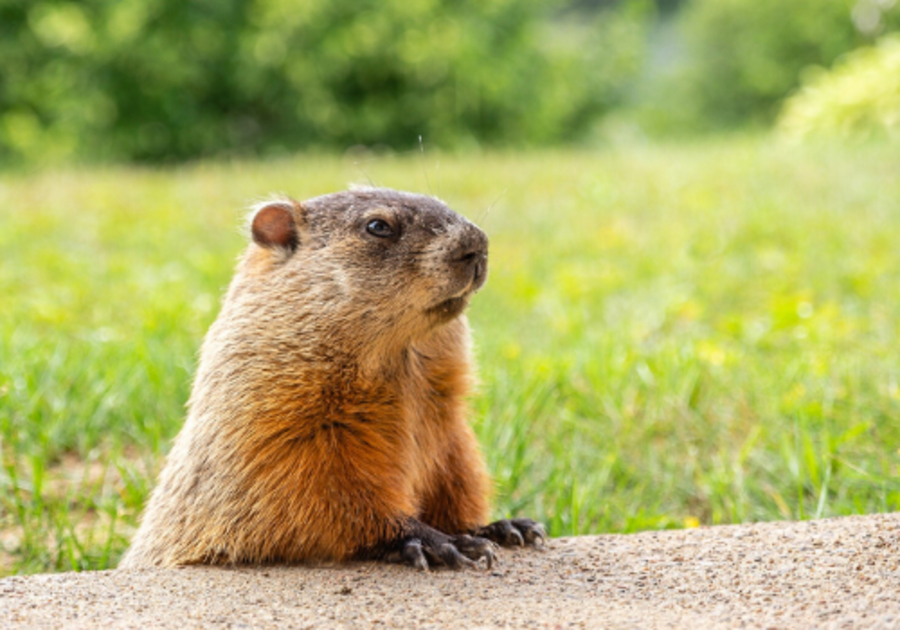Feb. 2 is the biggest day of the year for one large rodent.
Yes, that's right. It's Groundhog Day. One of the weirdest American holidays of all. It's the day when thousands of people gather before dawn on a frigid February morning in a park in a small Pennsylvania town to wait for some guy in a top hat and tuxedo to hold a groundhog over his head.
Legend has it, of course, that if Punxsutawney Phil sees his shadow, it’s six more weeks of winter weather. If he doesn’t? Good weather is right around the corner.
So what will it be this year? Only the groundhog knows.
Origins of Groundhog Day
It turns out that the concept of Groundhog Day actually originated in Germany. Germans used a hedgehog to "predict" the weather on Candlemas Day, a Christian holiday celebrated on February 2nd each year. Germans who immigrated to Pennsylvania brought the tradition with them, but -- lacking a hedgehog -- used a groundhog instead. Groundhogs are plentiful in Pennsylvania, much to the annoyance of farmers, who consider them a nuisance.
The History Channel says that the first mention of Groundhog Day historians can find dates to an 1887 newspaper in which an editor, who belonged to the "Punxsutawney Groundhog Club," wrote that Phil, the Punxsutawney groundhog, was America’s only true weather-forecasting groundhog.
Love the movie? Me too. But sadly none of the Bill Murray film was actually filmed in Punxsutawney, though it definitely captured the look and feel of the 5,900-person town and Gobbler's Knob.
5 fun Phil facts you need to know
Don't know much about groundhogs? Well you're in luck! I've visited famous Phil twice at his burrow in Punxsutawney, a road stop on the way to visit relatives. That makes me a groundhog expert of sorts, right?
Here are five fun Phil facts I've gleaned from my family's (short) visits to Punxsutawney that you can impress your friends and family with on Groundhog Day:
1. The town loves its groundhog
Punxsutawney seems to embrace its Groundhog Day fame with large groundhog statues scattered throughout town year round.

2. You can pay your respects
Punxsutawney Phil and his "wife," Phyllis, spend every day -- except Feb. 2 -- in the Punxsutawney Memorial Library. You can see the couple anytime in their enclosure through a glass window if the library is closed, and sign a guestbook to let the groundhog know you care if it's open. My family stops to pay our respects when driving through. Phil and Phyllis seem happy there, hanging out and waiting for the groundhog's one day of glory. But, may I ask, when will Phyllis ever get her day in the sun?

3. Groundhogs are true hibernators
That means they enter a deep sleep in October and don't emerge until early spring .. typically after Groundhog Day. During hibernation, a groundhog's temperature drops down to 40 degrees, its heartbeat slows to 5 times a minute, and its breathing rate slows down to just twice a minute. It also means visiting them at their burrow is kind of anticlimactic because they're always snoring.
4. A woodchuck doesn't eat wood
One of the groundhog's nicknames is woodchuck, which has nothing to do with wood. In fact, the groundhog doesn't eat wood. That means the tongue-twister "How much wood would a woodchuck chuck" is just nonsense. Shocking, I know. Instead, the nickname derives from a Native American word, wuchak, which roughly translates to "digger," according to Scientific American.
5. But it does whistle
Another nickname for the groundhog is whistle pig. That fun moniker comes from the sound a groundhog will make when it is alarmed. Here's an example of a groundhog whistle. Enjoy.



